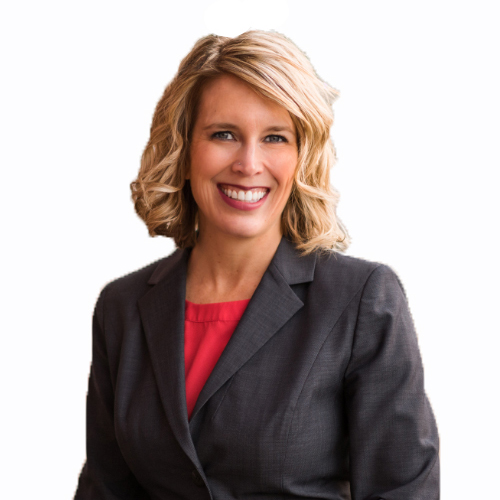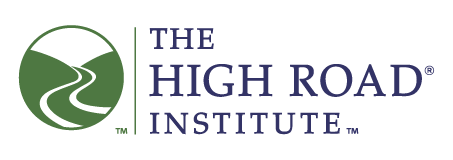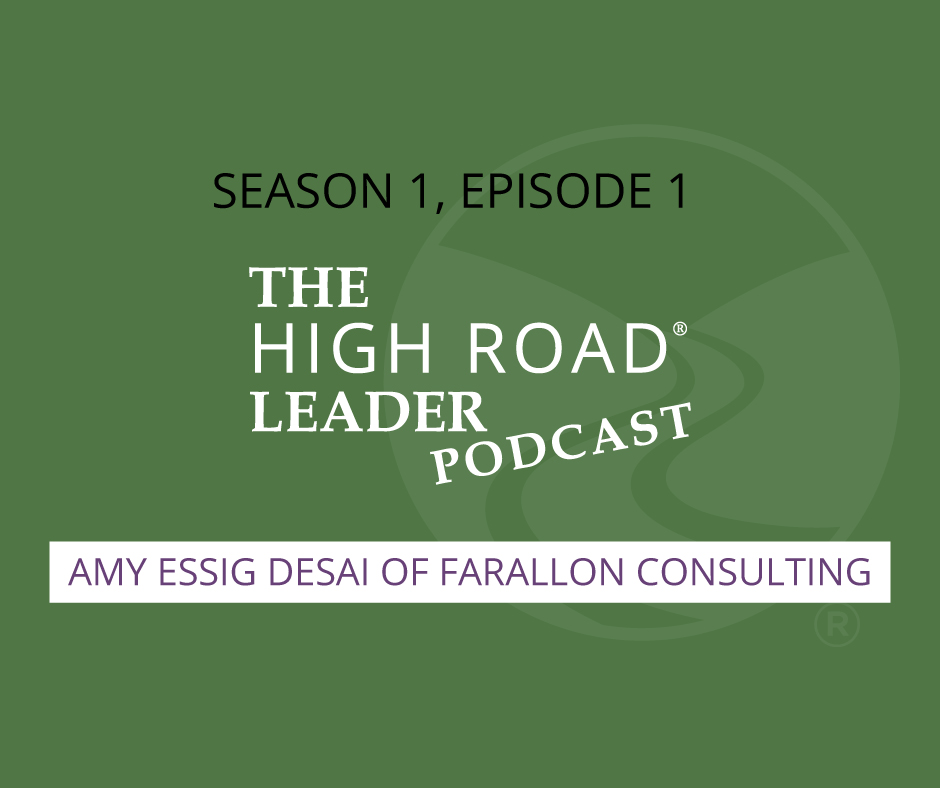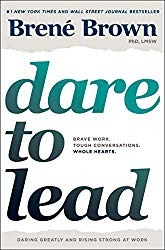
Amy Essig Desai of Farallon Consulting
Ms. Essig Desai is the CEO and a Principal Scientist at Farallon Consulting, L.L.C., with over 20 years of experience in environmental investigations, site cleanups, environmental due diligence, and regulatory negotiations. Ms. Essig Desai has been instrumental in the firm’s doubling in size, and in the past nine years has played an integral part in corporate strategy development and implementation, and ownership and leadership transition. She is committed to Farallon’s distinctive culture, internal development of future leaders, and providing fulfilling careers demonstrated by continuous professional growth and high personal satisfaction. In addition to her responsibilities as CEO, Ms. Essig Desai has managed multi-million-dollar sediment cleanup projects under the Comprehensive Environmental Response, Compensation, and Liability Act and the Resource Conservation and Recovery Act that have been administered under Administrative Orders on Consent. She has conducted and managed large-scale Remedial Investigations/Feasibility Studies and remediation design for sediment, soil, and groundwater cleanups, and has extensive experience in the construction and operation of large-scale remediation projects, and compliance monitoring programs.
visit farallonconsulting.com
Key Lessons from my conversation with Amy Essig Desai, CEO of Farallon Consulting.
I hope that you gained at least three fresh ideas that you can implement immediately. This is what I gleaned from this episode with Amy Essig Desai.
- Developing internal future leaders at all levels is a must… if you want to stay in business.
- A commitment to grooming future leaders must be in your organization’s DNA. This commitment starts by forming a succession plan, and then giving the experience of leadership to all employees.
- Becoming a leader is not always about the length of time spent in a profession. What works is requiring your technical experts to work closely with and shadow the experienced leaders.
- Elements of a good leadership development program are to provide employees with new opportunities, to allow technical experts to manage teams, projects, and budgets, and to use their talents in growing the company.
- It is the CEO’s obligation to shape the culture and one key component is the development and growth of tomorrow’s leaders.
- If you strive to become an Employer of Choice, employees will be drawn to your organization and be more likely to stay because they enjoy their work and love the culture.
- Amy’s entry into leadership was all about her job and running projects, managing resources, and heading teams. As she focused on helping others succeed, she soon realized that she was a becoming a leader.
Ron: Welcome to the High Road Leader Podcast Amy. I really appreciate you being here and taking the opportunity away from your busy schedule. Thank you very much.
Amy: Thank you for having me.
Question 1
Ron: As the leader of Farallon, you have a lot of important and interesting responsibilities. We’ll get into that a little bit later. But what I’d like to do is just start with asking, with the title of CEO, what really is your primary role within the organization?
Amy: So my role as CEO, I played an integral part of the strategy development and implementation in the ownership and the leadership transition. And my focus over the last two and a half years since taking on the CEO role, has been developing internal future leaders; trying to provide fulfilling careers through new opportunities, professional growth.
Amy: And I’ve had the focus of also looking at our business development opportunities and where do we see the growth along the west coast. Particularly with the focus in California. Another portion of my role, and probably the biggest piece, is along the lines of culture. Really, a heavy focus on employee mentorship leadership development, having personal satisfaction where we have individuals who are really high performers.
Amy: And look at Farallon as one of the best places to work and would recommend it to a friend.
Ron: That’s one thing I really appreciate about your organization, is that you do want to be an employer of choice, and have made a conscious effort to do what you can to achieve that status.
Amy: It’s been very exciting for us. And particularly, about two and a half years ago we went from a partner led company, where we had nine owners, and we went to an employee owned company, which the company is now 100% employee owned. So it’s really exciting for folks to be able to contribute to the company’s success and bottom line, and knowing that they’re a part of that, and are going to be a part of the continuing success of the company.
Ron: And I would also believe that that means that you’re managing the organization just a little bit differently.
Amy: Farallon’s always done a good job with leadership development and promoting leadership development within the company, and getting that next generation and succession of leaders. It’s become even more so apparent that that is an absolute must, as we are employee owned company and we’re really promoting leadership at all levels and everyone is a leader within the company. Whether there’s a leader title behind it or not.
Ron: Excellent.
Question 2 – Dream Job, part 1
Ron: I’m going to ask you a provocative question and I’ll come back to it as to why I ask it. What did you want to be when you were a child? What was your dream?
Amy: That’s a good question. It wasn’t an environmental consultant or a CEO per se. Actually, I wanted to be a dentist or an orthodontist. I have a thing for a really good, genuine smile and it says so much about a person. Early on that was what I wanted to do and then things just changed along the way. And I got in to the environmental field.
Ron: What do you think it was about being a dentist that, in terms of the experience, what do you think that child mind of yours was thinking at the time?
Amy: Well, I think it was really looking at, and probably the orthodontia even more is that, you had somebody who’s coming in and they’ve got a crooked smile and they’re embarrassed. And there’s these tools that you can put on someone’s teeth and completely transform a person. And somebody who maybe was embarrassed about their smile or what they had and went through a lot of painstaking procedures to really say, I want it to be better, and here are the things that I can do.
Amy: And I think it’s just the coolest thing to be able to make that change and really change someone’s life.
Ron: That’s very interesting. Love to hear that.
Question 3
Ron: Now let’s go back to you. What was your path to leadership? As I understand your story, you actually started out as a technical person. As a scientist, and then you made a decision to go into leadership. What was the catalyst? What made you go back to school to get the training that you needed?
Amy: That’s right Ron. I did start out really doing the technical work and my entree into leadership was really with managing projects and clients. Over the years the projects got bigger and more complicated, and the number of resources that I managed expanded, and the stakes really got higher. I learned how to work and manage teams with different skills and abilities.
Amy: One of the things that I learned early on was the importance of providing timely, specific and constructive feedback. That was really essential. Along the way I had the opportunity to work with and be mentored by some really exceptional leaders. I was a sponge, and I tried to absorb as much as I could. And learn from them and adapt and come up with my own style and my own way of doing things.
Amy: And then I did. I went back to business school midway through my career, maybe a little more than a mid point. That was truly life changing for me in terms of the direction I saw myself going into the future. I already had an appetite for the business, but then to really have the exposure and then the confidence through going back to school, and then opportunities within the company around the culture initiative and growth.
Amy: I learned thereafter that I truly wanted to be in a position where I was managing the firm.
Ron: Do you believe that your time that you spent going through the Foster School of Business was worth it?
Amy: Oh, absolutely. I would recommend that to … I think it was an amazing experience for me.
Ron: Great. Farallon has a great reputation.
Question 4
Ron: What does your organization do best?
Amy: Farallon, being an environmental consulting firm, we are in the business of consulting. We understand that business really well. Whether it’s external or internal, it’s always about building relationships. Based on experience, we’ve done a really good job of understanding what success looks like on a project for our clients and on their projects.
Amy: And getting projects transitioned to a point where they’re able to better manage and understand their liabilities and risks. And get them to a point where they’re able to make decisions that are well-informed, and they feel good about it at the end of the day. Even if they didn’t want to be there in the first place. And we’re really about building the most direct path to achieving that success for them.
Ron: I’m sure in some of your projects, people really don’t want you showing up because it means they’re going to have to spend some money and time to remediate the problem.
Amy: Yes, that is correct. And, what we try and do, oftentimes, we work with all different types of clients, and we really seek to understand what their problem is, what they need help solving, and come up with solutions that are going to work for them. And at the end of the day, they have to be the ones who are accountable for it and answer to it.
Amy: And we’re trying to help them make it as quickly as informed and as painless as possible. And as costly as well. We’re trying to save them money and at the end of the day, do the right thing that works best for them and their business.
Ron: And helps the environment as well.
Amy: That’s right.
Question 5
Ron: Now that you’ve been a leader for a number of years, how would you define good leadership?
Amy: There’s a number of descriptors that I would say define good leadership. And I look at it as some of the strongest leaders are empathetic. They know how to provide the feedback in a constructive way. They’re curious and they ask questions. They’re vulnerable. And that’s a big thing about being vulnerable, and it’s not about telling everybody your life story, but it’s about sharing, here’s what I’m good at and here’s what I need help with or personally struggled with and constantly seeking to learn and understand.
Amy: Really talking about what’s working well and what’s not working and saying, gosh, we’ve been doing it this way for so long and maybe that’s not the best way to do it moving forward. I think that strong leaders really enjoy watching and helping others succeed. Committed to doing outstanding work. Approachable and trustworthy I think are really big and essential traits in a leader.
Amy: I definitely have a doors open policy. I want people to come and talk to me. Having optimism and really being inspiring, I think are also leadership traits that I try and exude. And then really at the end of the day, a leader needs to be decisive and capable of making tough and sometimes unpopular decisions, but it’s what’s in the best interest for the firm and a leader needs to be capable of doing that.
Ron: There is definitely a journey to become a leader, especially if you’re a technical expert.
Amy: Yes.
Question 6
Ron: Now you’ve guided Farallon through double digits growth, and you’ve of course had more need for internal leaders. What is working for you in developing these internal experts to become leaders?
Amy: As you mentioned that, we have experienced a lot of growth. And Farallon is right at a tipping point. We’re a 20 year old company, and one of the things I learned early on in my tenure at Farallon, and I’ve been here 17 years, is that leadership development was instilled as an absolute must, as well as succession planning is really critically important to the continued success of the firm. Farallon has always been committed, and will continue to be committed to developing the next generation of leaders.
Amy: We really look to intentionally promote and develop from within. That implementation looks like opportunities across all levels. Whether it’s managing projects or people or clients or different strategic initiatives. And that’s really regardless of years of experience. It’s not about how many years of experience. In some cases, the less years, the better. And just really having the opportunity for those up and comers to work with and shadow alongside those who have the years on them, to have the opportunity for growth.
Amy: And it’s so important to us that one of our strategic initiatives for the next couple of years is called Farallonian’s First. That’s about leadership development and professional growth for all Farallonians, as we call ourselves. While we are in the business of helping our clients manage environmental risks and liabilities and solving their problems, we also have a concurrent goal of being laser focused on leadership development.
Amy: It’s something that I really want the company to be known for, developing those future leaders. So not only is it a place of technical excellence and working on great and fun projects, it’s also about, we’ve got strong leadership and the firm is well run.
Question 7
Ron: Have you found that there are some technical experts that just really do not want to be leaders?
Amy: I think people are leaders in their own way and can be leaders on projects. Some folks are really interested in doing the technical work and they may work with a smaller team. They may not be as focused on the running the business and the day to day, and that is okay. They have their teams and resources that they will work with, and it may be on a smaller capacity and smaller scale, and that’s okay.
Ron: That’s great to hear.
Question 8
Ron: Now, is there a specific leadership book that you would recommend? Maybe one that you are currently reading or that you have read in the past?
Amy: A book that I’m currently reading is called Dare To Lead by Brene Brown. I’ve been introduced to Brene Brown over the past couple of years and she’s really big on vulnerability. And talking about what are the areas that we need to focus in on. Really doing the self-assessment, being self-aware, having the courageous conversations with people. Very much big on providing real and timely feedback, and truly being vulnerable.
Amy: It’s not about telling everyone your life story, but it’s about saying, here are my wants and needs and fears, and letting people know that upfront. Sharing really, it’s more about providing them insight into who you are, and your style, and it’s about connecting with people.
Ron: I can see where you’ve taken to heart some of her concepts.
Amy: Yes, absolutely. You heard some of that in my descriptors of the leadership capabilities.
Ron: Yes. And it’s great that she’s still got one of the most popular TED talks.
Amy: All about vulnerability.
Question 8
Ron: To switch gears just a little bit, when you hear the term high road, what does that mean for you? What do you take away from that phrase?
Amy: High road? I would distill it down to this. It’s the right thing, the right way, every time.
Ron: I love that. Maybe I’ll borrow that. I’ll give you credit for it. Alright.
Question 9
Ron: And my final question is, where can people learn more about you and your organization Farallon?
Amy: We are active on social media; our website, farallonconsulting.com. We have a lot of really good information. We feature our people. It’s a really good insight into the company culture. I would encourage people to go there. We’re also on Instagram and Facebook. I’m on there, and then also LinkedIn is another great way to find me and the company.
Ron: Great. And you do have a fantastic website. It’s very Professional.
Amy: Thank you.
Question 10 – The Ask
Ron: All right, now before we go, is there anything that you’d like to pose to our audience? Maybe you’re looking for the specific type of person or you want them to consider working for you. What would you like to tell them?
Amy: Farallon is a firm that’s been established, again for 20 years, and we’re looking really at the next 20 years and what does that look like. We’re largely established on the west coast, we’re looking to grow into California. Finding talents, we’re looking for cultural fit, people who want to do the hard work and really have a good time doing it.
Amy: I guess the ask for the group is, if you’re interested in joining a company, we’re growing in California, we’re growing in Oregon and Washington, but the big focus is certainly California. Please seek us out and we’d love to have a conversation.
Ron: And Amy’s vision for her organization is to be the best consulting firm on the west coast. You might be that person that can help them become that organization.
Question 2 – Dream Job, part 2
Ron: Now, I’ll return to the question that I asked you about what you wanted to be when you grew up. First of all, the first reason is that I believe that we all have an identification of the experience we want to have as an adult, but in our child’s brain, we can’t exactly define it. We often define it in terms of something that we see somebody doing.
Ron: The second reason, of course, is that most technical experts, like you, don’t plan to become a leader. They just find themselves in a situation, either by invitation or possibly by demand, to be that leader and they’re now through the leadership door.
Ron: So let me turn to you. You had mentioned that you thought being a dentist was a cool profession, but if you think about what Farallon is doing, is you’re putting smiles on the Earth. You’re using tools to make it better, and to make it more presentable. You’re using tools and the tools are not only just your processes, they’re also your people and the methodologies.
Ron: I believe that you have achieved what you dreamed. Just your child mind of what it was, was not there. Does that make sense?
Amy: It does. I guess I hadn’t thought of it that way. I’m really good I think on that because I can see that and that is what we’re doing and what we are about. We are fixing and solving problems, and hopefully making our clients’ lives a lot easier. And we’re cleaning up the environment in so doing. And so that’s really fun to think about it that way.
Ron: Also see some parallels in terms of the drilling. Not that you’re drilling, but often the projects that you work on, you have to go in the earth and redo things-
Amy: That’s great.
Ron: … just like a dentist does.
Close
Ron: Well thank you very much Amy for making a difference. You are a person of influence, and the audience can now see that you are helping to increase the number of great leaders that we need desperately. I appreciate the time that you spent with me and for your insights into who you are.
Amy: Great. Thank you, Ron. It was a pleasure to be here.
Ron: You’re welcome.


